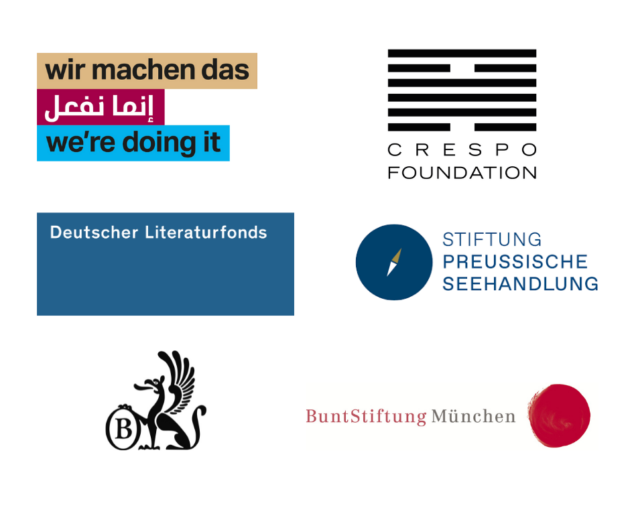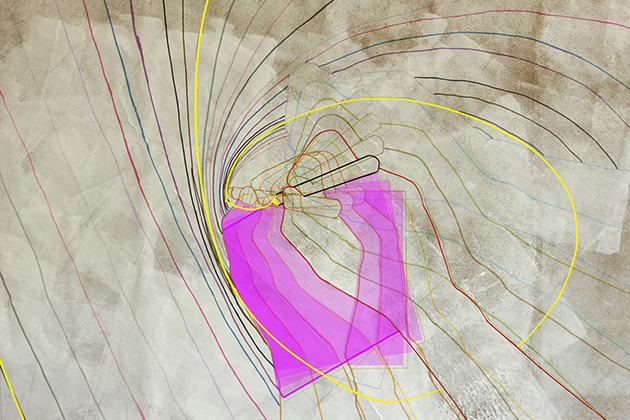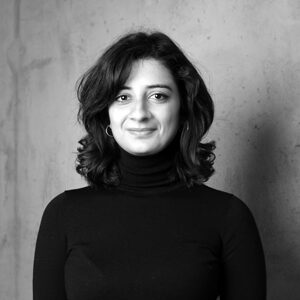Writing On (Weiter Schreiben) – A Platform for Literature from zones of war and conflict
In 2017, we asked authors having sought refuge in Germany what they wish for. The answer was always: To keep writing.
Writing On is a literary platform for authors from war and crisis zones. Since 2017, we have been translating, illustrating and publishing poetry and prose from Arabic, Persian and other languages on our online portal weiterschreiben.jetzt – in German and the original. We connect writers in exile with renowned German-language authors in tandems and organise joint readings. We do this because continuing to write, to be read and to be heard is existential for writers – and because we see the texts as an invaluable enrichment of the local literary landscape.
Founded to make the arrival easier for writers who have fled to Germany, both in the country and on the book market, we have focused on personal encounters and networking right from the beginning. Ever since this network has grown continuously. Today we cooperate with independent centres for literature in Germany, Austria, Poland and Switzerland and more than 150 authors, translators, artists, photographers and musicians from 12 countries. Moreover, since 2019 we have been publishing a print magazine once a year, we have produced a podcast, have published an anthology as well as an audiobook and have initiated a literary correspondence project called W/Ortwechsel.
Parallel to diversifying media and formats, Writing On has also expanded its regional reach. In 2020, the sister association Writing On Switzerland was founded. In 2021 we started collaborating with women writers in Afghanistan through Untold –Writing On Afghanistan. In 2022, we expanded our network together with authors from Angola, Egypt, Belarus, Burkina Faso, Eritrea, Iran, South Sudan and Ukraine.
In 2018, Writing On received The Power of the Arts Award. In 2022, the project was awarded the Hermann Kesten Prize by the German PEN Centre. For the project Untold – Weiter Schreiben Afghanistan, Weiter Schreiben received the BDI Cultural Promotion Award in 2023 together with the KfW Foundation and the London-based NGO „Untold Narratives CIC“.
Writing On is supported by the Crespo Foundation, the German Literature Fund, the Stiftung Preußische Seehandlung, the CH Beck Kulturstiftung and the BuntStiftung München.


